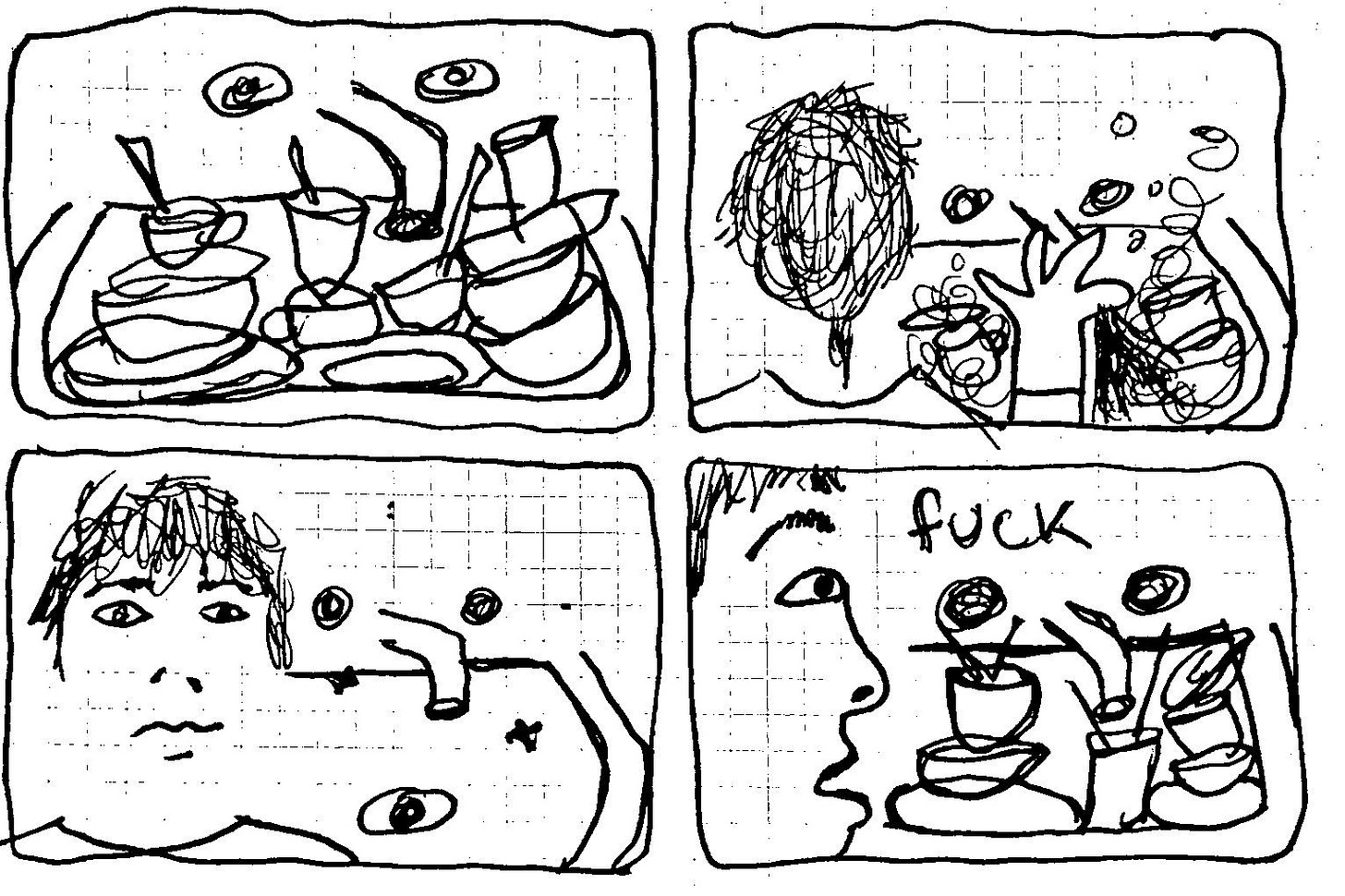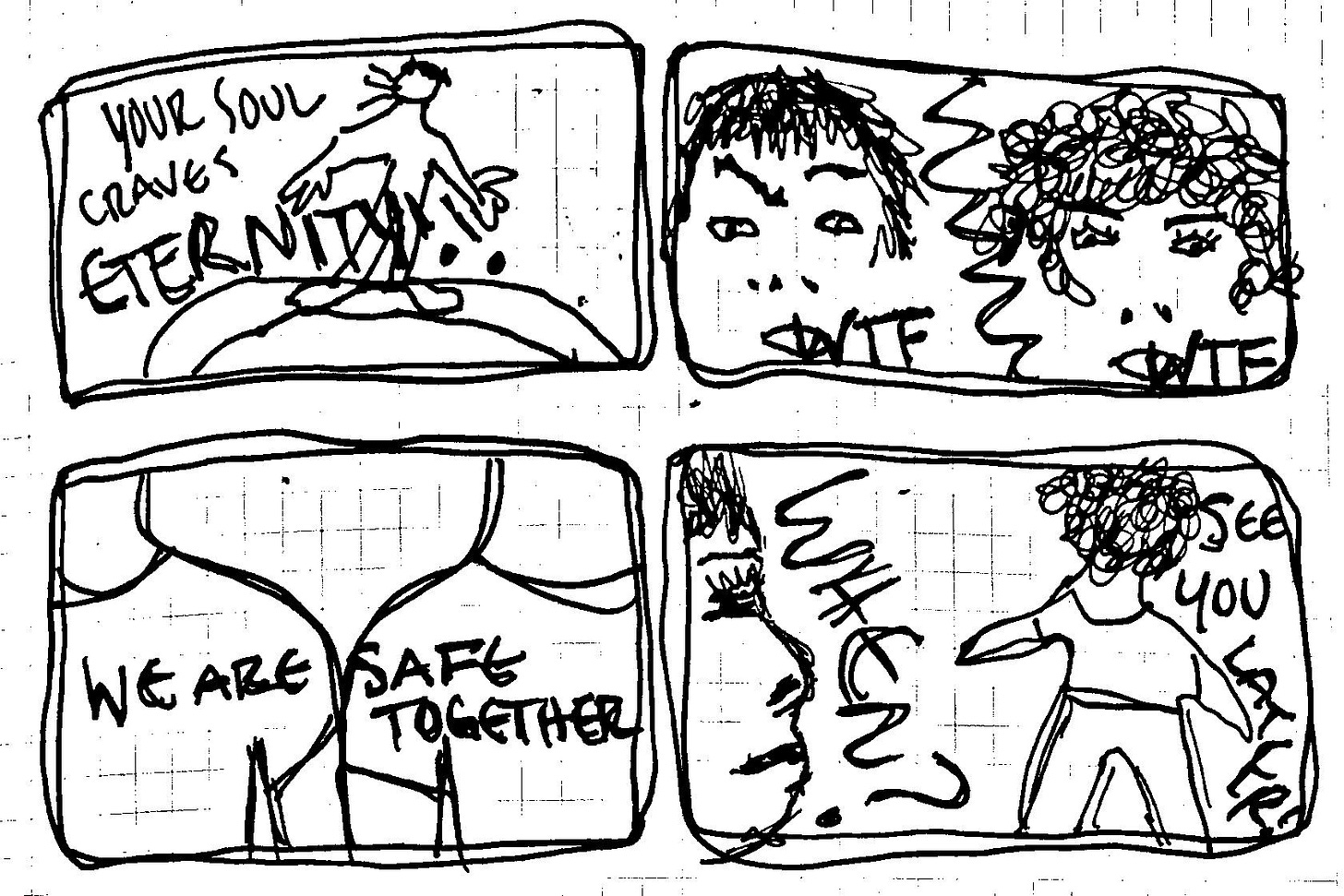Lately, life in Palouse has been feeling a little old lady who lives in the shoe. Room after room and my loved ones are there. We’re yelling about paints and spoons and water cups under manifold roofs while castles are crumbling around us. We’re learning to stop by when the lights are on and to send word for borrowed sugar because we have to. It feels jovial some days, almost strangely so, and also like the blue depth of winter some others.
It’s a new year, an old year, some say five since 2020—though that’s not my experience. Sure, the shirt sleeves of my young peers are growing shorter. Their teeth are falling out. They’re riding along to the Big City for haircuts with friends and no parents. In these ways, they’re helping to mark the minutes otherwise indicated only by the dishes piling up in our many kitchens, waiting to get washed by our many hands.
Here in the shoe, neighbors are singing in the parlor. C— is pouring coffee for strangers and W— is pulling trivia questions right out of his head. There’s a yard and, out in it, a rotating door of naked friends moving to and from the sauna. There’s a lake, stars above it, and M— listening to the ice ringing at its edge. Somewhere in here a baby is being washed in a sink… but so is an old bag of wine.

If it were 1784, vegetarian activist, atheist and eccentric miss-speller Joseph Ritson would be sitting in the study, getting ready to claim fame as the first to write down our rhyme:
There was an old woman who lived in a shoe.
She had so many children, she didn't know what to do.
She gave them some broth without any bread;
She whipp'd all their bums, and sent them to bed.
And here we are in our bunks—whipp’d by the sharp wind and the mean word carried on it—somehow still resting better together. It may be dark, dark, dark but we have drawers full of candles. We have contraband to read under the covers and the feet of our friends to keep warm. We have windows to look out of, whether at the moon or the shoes across the street.
Because, there, it seems they’re penning a different rhyme:
There was an old woman
Who lived in a shoe,
She had so many children,
And loved them all, too.
She said, "Thank you Lord Jesus,
For sending them bread."
Then kissed them all gladly
and sent them to bed.
Under that roof, it must be easy to forget that it’s money and the bent backs of others that make bread in this world—not merit. There, it’s marriage and family first because it’s too hard to imagine others in need of shelter or opportunity or peace. There, it’s possible to dream of one day owning a house in the riviera of the Middle East.
Under that roof, it’s always The Christian Mother Goose and never Robin Hood. It’s borders closed by too wide of streets and too tall of fences. It’s the evil of othering and the desperation of scarcity. It’s thanking God for the bread you’re not breaking.

But what if that’s just what it looks like because we’re scared too?
Under that roof, odds are, they’re drinking just broth. Washing their dishes, unwell. Looking out their window and, some days, giving a little wave.
And here we all are, trying our best to wave back.

